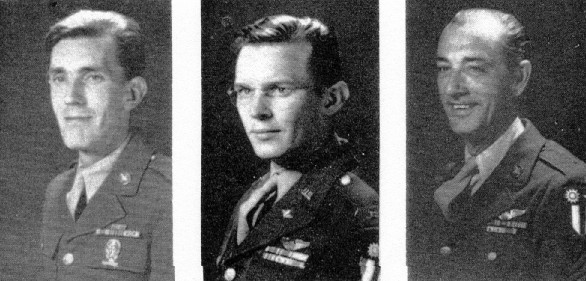|
|
|
![]()
HELL HAS ITS FURY
“CLYDESIDE” - LATER
RENAMED “BLACKPOOL”
Following the battle of “White City” high command put together the plans for the next crucial of the allied campaign. At the core of the plan was the establishing of a new block to replace “White City” in keeping the Japanese from using the railway valley to Myitkyina until June 1. By that time it was hoped that the Chinese would have broken through from the East (“Salween Campaign”).
The airstrip, to be named “Clydeside” (later changed to “Blackpool”), was to be established not North of Pinbaw nor South of Hopin. With the death of General Wingate the quasi-guerrilla system of warfare was to come to an end and the troops would have to fight out in the open.
Do the extreme rough terrain, all gliders crash landed. Three C-47s (“Dakotas”) crashed with one being set on fire by the Japanese. American and British pilots flew in with unwavering determination and, in the early days of the battle, were able to remove the wounded and give support to the forces with supplies and ammunition.
Three men from the Twenty-Seventh Troop Carrier were flown in to assist, by radio, the landing of aircraft. They were under constant attack throughout the skirmish. Their task was to set up a ground radio station to talk the pilots into the strip. They were shot at, bombed, and saw one of the ground C-47s blown to bits by Japanese aircraft and generally spent several days in total hell. At night they could see the Japanese moving across the strip.
The three troopers, later awarded the Bronze Star for their bravery, were:
SIEGEL, William L.
- First Lieutenant 0-530582
(T-474)
BARKALOW, Frederick
S. - Tech Sergeant
12137205
WRIGHT, Tom L.
- Tech Sergeant 15320435

BARKALOW, SIEGEL, WRIGHT
Tales of how our men were able to escape the area are etched in their minds forever and a day.
Hunt, Robert H., who flew in under the heaviest of enemy fire, flew on to become one of the top pilots of the "Hump-T-Dumps" with many more harrowing experiences in the skies over China. He was assigned to the squadron on 26 December 1942 as a Sergeant Pilot, and returned to the United States in early 1945 holding the rank of Captain.

HUNT, Robert H.
(T-185686) 0-521584
Report made from Official Squadron Records
Audio tapes from interviews with the men.